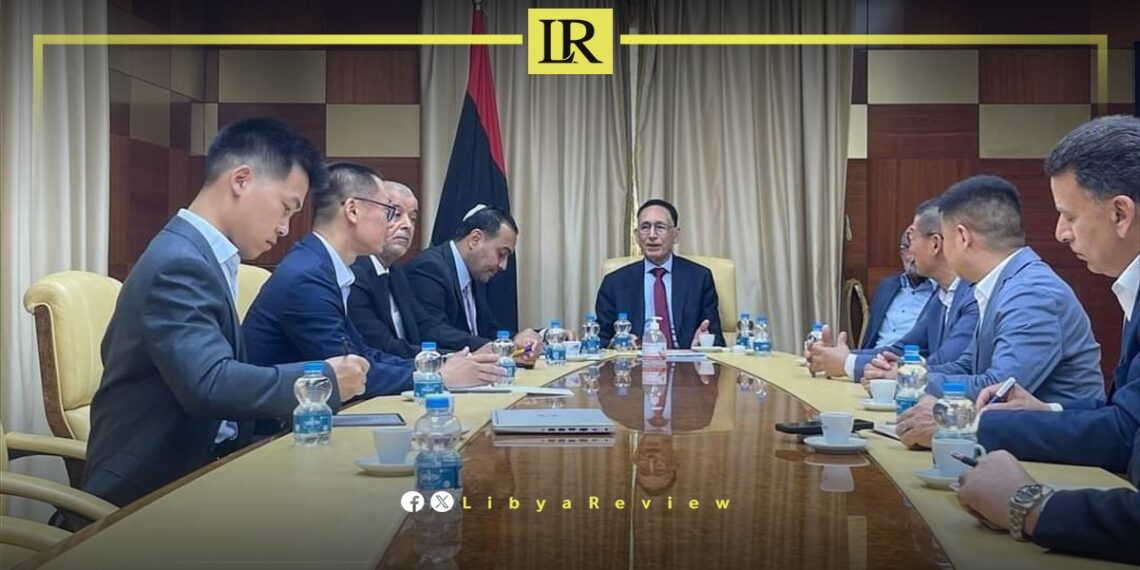Libya’s Minister of Economy and Trade, Mohamed Al-Hwaij, explored potential collaborations with Chinese companies on infrastructure, industrial projects, and investments in Libya.
This occurred during two meetings on Monday, attended by Mohamed Raied, President General Union of Chambers of Commerce, Industry, and Agriculture in Libya, and Rashid Sowan, President of the Business Owners Council.
According to a statement from the Ministry of Economy, the discussions focused on commercial and investment cooperation, particularly in the sectors of industry, contracting, and infrastructure.
The two sides discussed strengthening economic and investment ties between Libya and China. This includes signing bilateral agreements and memorandums of understanding in areas of mutual interest.
The participants agreed on the necessity of coordination between Libyan and Chinese parties to conclude bilateral cooperation agreements. These agreements aim to open new avenues for cooperation between the Libyan and Chinese private sectors, fostering mutual economic benefits.
Beijing and Tripoli are rebuilding ties after China withdrew its investors in 2011. However, Libya’s political division could pose challenges, according to a report published today by the English-language South China Morning Post in Hong Kong.
Before the 2011 revolution that ousted late lone-time leader Muammar Gaddafi and led to a bloody civil war in Libya, China had extensive interests in the oil-rich North African state. At that time, 75 Chinese companies controlled 50 major projects with a contractual value exceeding $20 billion, according to the Chinese Ministry of Commerce.
Intensive Chinese investments, including oil, construction, railways, and telecommunications, abruptly halted after some companies were raided and dozens of workers were seriously injured. This prompted Beijing to act swiftly to evacuate its citizens from the unrest. During the crisis, 35,860 Chinese nationals were evacuated from the country, marking the largest official evacuation abroad since the founding of the People’s Republic of China in 1949. As the security situation deteriorated, China suspended new investments, a situation that remained relatively unchanged until now.
Currently, Libya is divided between two administrations: the Government of National Unity based in Tripoli in the west, and the rival House of Representatives government-designated government in the east.
Recently, signs have emerged of China’s willingness to return to the energy-rich but politically divided country. On June 10, Mohamed Al-Hwaij, Minister of Economy and Trade in the Government of National Unity, issued a directive to activate the Libyan-Chinese Joint Economic Chamber, urging it to help build bridges and enhance investment communications between the two countries.
Senior officials in Tripoli and Beijing negotiated China’s return to Libya, which was among the issues discussed when the GNU Prime Minister Abdul Hamid Dbaiba visited China in late May. He held talks with Premier Li Qiang and Foreign Minister Wang Yi on the sidelines of the 10th Ministerial Conference of the China-Arab States Cooperation Forum, discussing the restoration of political and economic cooperation between the two countries.


